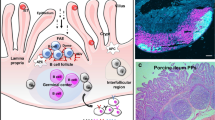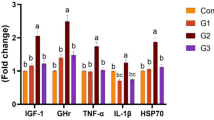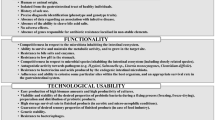Abstract
The weaning of dairy calves is commonly associated with stress. Recent studies focused on supplementation that could be effective during stress. The aim of the study is to evaluate the effect of probiotics and chromium methionine on immune response in dairy calves during weaning. Twenty-eight female dairy Holstein calves with a bodyweight of 93.46 kg 11.82 (mean SD) were randomly assigned to one of four experimental treatments (n = 7) in a completely randomized design (21 days before the weaning date to 21 days after the weaning date). The experimental groups consists of the group that did not supplement with additives (control), the group that supplemented with probiotic (Pro), the group that supplemented with chromium methionine (Cr-Meth), and the group that supplemented with probiotic and Cr-Meth (Pro + Cr-Meth). Serum amyloid A, interleukin-1β, ferritin, serum cortisol, adenosine deaminase, total antioxidant capacity (TAC), malondialdehyde, and globulin levels were measured in this study. Results show that cortisol, interleukin-1β, serum amyloid A, adenosine deaminase, and ferritin were significantly higher in the controls compared to the experimental groups. In the control group, malondialdehyde levels were slightly higher. The total antioxidant capacity (TAC) of the controls was significantly lower. The mean globulin concentration was lowest in the probiotic + Cr-Met group. Stress indicators such as cortisol, interleukin-1, serum amyloid A, adenosine deaminase, and ferritin were also found to be higher in the control group, while TAC, an oxidative stress indicator, was the lowest. We can anticipate that adding probiotics and chromium methionine to the diet can affect the immune system; also we suggest that feeding these additions together will have a greater impact on the immune system, but additional research is needed to understand how these additives might affect the immune system.








Similar content being viewed by others
Availability of data and material
Data availability was declared by the authors.
References
Baimishev M, Yeremin S, Plemyashov K, Baimishev H, Konopeltsev I (2019) Markers of lipid metabolism and antioxidant system of organisms of cows depending on their physiological state. IOP Conf Ser: Earth Sci. IOP Publishing 403:012013. https://doi.org/10.1088/1755-1315/403/1/012013
Dignass A, Farrag K, Stein J (2018) Limitations of serum ferritin in diagnosing iron deficiency in inflammatory conditions. Int J Chronic Dis 2018. https://doi.org/10.1155/2018/9394060
Enríquez D, Hötzel MJ, Ungerfeld R (2011) Minimising the stress of weaning of beef calves: a review. Acta Vet Scand 53:1–8. https://doi.org/10.1186/1751-0147-53-28
Fávero JF, Da Silva AS, Bottari NB, Schetinger MRC, Morsch VMM, Baldissera MD, Stefani LM, Machado G (2018) Physiological changes in the adenosine deaminase activity, antioxidant and inflammatory parameters in pregnant cows and at post-partum. J Anim Physiol Anim Nutr 102:910–916. https://doi.org/10.1111/jpn.12917
George CX, Ramaswami G, Li JB, Samuel CE (2016) Editing of cellular self-RNAs by adenosine deaminase ADAR1 suppresses innate immune stress responses. J Biol Chem 291:6158–6168. https://doi.org/10.1074/jbc.m115.709014
Ghiselli A, Serafini M, Natella F, Scaccini C (2000) Total antioxidant capacity as a tool to assess redox status: critical view and experimental data. Free Radic Biol Med 29:1106–1114. https://doi.org/10.1016/s0891-5849(00)00394-4
Hickey MC, Drennan M, Earley B (2003) The effect of abrupt weaning of suckler calves on the plasma concentrations of cortisol, catecholamines, leukocytes, acute-phase proteins and in vitro interferon-gamma production. J Anim Sci 81:2847–2855. https://doi.org/10.2527/2003.81112847x
Hopster H, O’Connell JM, Blokhuis HJ (1995) Acute effects of cow-calf separation on heart rate, plasma cortisol and behaviour in multiparous dairy cows. Appl Anim Behav Sci 44:1–8. https://doi.org/10.1016/0168-1591(95)00581-c
Humblet MF, Guyot H, Boudry B, Mbayahi F, Hanzen C, Rollin F, Godeau JM (2008) Relationship between haptoglobin, serum amyloid A, and clinical status in a survey of dairy herds during a 6-month period. Vet Clin Pathol 35:188–193. https://doi.org/10.1111/j.1939-165X.2006.tb00112.x
Jain S, Gautam V, Naseem S (2011) Acute-phase proteins: as diagnostic tool. J Pharm Bioallied Sci 3:118. https://doi.org/10.4103/0975-7406.76489
Kuhla B (2020) Pro-inflammatory cytokines and hypothalamic inflammation: implications for insufficient feed intake of transition dairy cows. Animal 14:65–77. https://doi.org/10.1017/s1751731119003124
Lashkari S, Habibian M, Jensen SK (2018) A review on the role of chromium supplementation in ruminant nutrition—effects on productive performance, blood metabolites, antioxidant status, and immunocompetence. Biol Trace Elem Res 186:305–321. https://doi.org/10.1007/s12011-018-1310-5
Lesmeister K, Heinrichs AJ, Gabler M (2004) Effects of supplemental yeast (Saccharomyces cerevisiae) culture on rumen development, growth characteristics, and blood parameters in neonatal dairy calves. J Dairy Sci 87:1832–1839. https://doi.org/10.3168/jds.S0022-0302(04)73340-8
Lynch EM, Earley B, McGee M, Doyle S (2010) Effect of abrupt weaning at housing on leukocyte distribution, functional activity of neutrophils, and acute phase protein response of beef calves. BMC Vet Res 6:39. https://doi.org/10.1186/1746-6148-6-39
Markowiak P, Śliżewska K (2018) The role of probiotics, prebiotics and synbiotics in animal nutrition. Gut Pathog 10:21. https://doi.org/10.1186/s13099-018-0250-0
Meyts I, Aksentijevich I (2018) Deficiency of adenosine deaminase 2 (DADA2): updates on the phenotype, genetics, pathogenesis, and treatment. J Clin Immun 38:569–578. https://doi.org/10.1007/s10875-018-0525-8
Moretti P, Paltrinieri S, Trevisi E, Probo M, Ferrari A, Minuti A, Giordano A (2017) Reference intervals for hematological and biochemical parameters, acute phase proteins and markers of oxidation in Holstein dairy cows around 3 and 30 days after calving. Res Vet Sci 114:322–331. https://doi.org/10.1016/j.rvsc.2017.06.012
Orino K, Watanabe K (2008) Molecular, physiological and clinical aspects of the iron storage protein ferritin. Vet J 178:191–201. https://doi.org/10.1016/j.tvjl.2007.07.006
Paulazo MA, Klecha AJ, Sterle HA, Valli E, Torti H, Cayrol F, Arcos MLB, Cremaschi GA (2019) Hypothyroidism-related zinc deficiency leads to suppression of T lymphocyte activity. Endocrine 66:266–277. https://doi.org/10.1007/s12020-019-01936-7
Riddell J, Gallegos A, Harmon D, McLeod K (2010) Addition of a Bacillus based probiotic to the diet of preruminant calves: influence on growth, health, and blood parameters. Int J Appl Res Vet Med 8:78–85
Roselli M, Pieper R, Rogel-Gaillard C, de Vries H, Bailey M, Smidt H, Lauridsen C (2017) Immunomodulating effects of probiotics for microbiota modulation, gut health and disease resistance in pigs. Anim Feed Sci Technol 233:104–119. https://doi.org/10.1016/j.anifeedsci.2017.07.011
Shrivastava R, Upreti R, Seth P, Chaturvedi U (2002) Effects of chromium on the immune system. FEMS Immunol Med Microbiol 34:1–7. https://doi.org/10.1111/j.1574-695X.2002.tb00596.x
Soltan MA (2010) Effect of dietary chromium supplementation on productive and reproductive performance of early lactating dairy cows under heat stress. J Anim Physiol Anim Nutr 94(2):264–272. https://doi.org/10.1111/j.1439-0396.2008.00913.x
Steele MA, Doelman JH, Leal LN, Soberon F, Carson M, Metcalf JA (2017) Abrupt weaning reduces postweaning growth and is associated with alterations in gastrointestinal markers of development in dairy calves fed an elevated plane of nutrition during the preweaning period. J Dairy Sci 100:5390–5399. https://doi.org/10.3168/jds.2016-12310
Timmerman H, Mulder L, Everts H, Van Espen D, Van Der Wal E, Klaassen G, Rouwers S, Hartemink R, Rombouts F, Beynen A (2005) Health and growth of veal calves fed milk replacers with or without probiotics. J Dairy Sci 88:2154–2165. https://doi.org/10.3168/jds.S0022-0302(05)72891-5
Weary DM, Jasper J, Hötzel MJ (2008) Understanding weaning distress. Appl Anim Behav Sci 110:24–41. https://doi.org/10.1016/j.applanim.2007.03.025
Werners A, Bull S, Fink-Gremmels J (2005) Endotoxaemia: a review with implications for the horse. Equine Vet J 37:371–383. https://doi.org/10.2746/0425164054529418
Wu ZZ, Peng WC, Liu JX, Xu JZ, Wang DM (2021) Effect of chromium methionine supplementation on lactation performance, hepatic respiratory rate and anti-oxidative capacity in early-lactating dairy cows. Animal 15(9):100326. https://doi.org/10.1016/j.animal.2021.100326
Yates DT, Ross TT, Hallford DM, Yates LJ, Wesley RL (2010) Technical note: comparison of salivary and serum cortisol concentrations after adrenocorticotropic hormone challenge in ewes. J Anim Sci 59:261–264. https://doi.org/10.2527/jas.2009-2204
Acknowledgements
The authors would like to thank the Research Council of Shiraz University and School of Veterinary Medicine, Shiraz University, for their financial and technical support. The authors further want to thank the owners and staff of the Pegah Fars milk company for their cooperation.
Author information
Authors and Affiliations
Contributions
AH conceived and designed the research. SK, AH, SN, and AR conducted experiments. SN contributed new reagents or analytical tools. AH and SR analyzed the data. AH and SR wrote the manuscript. All authors read and approved the manuscript.
Corresponding author
Ethics declarations
Funding
This study was financed by Ph.D. Student project grant number: 95INT2M154694 by School of Veterinary Medicine, Shiraz University, Shiraz, Iran.
Conflict of interest
The authors declare that they have no conflict of interest.
Ethical approval
All procedures performed in studies involving animals were in accordance with the ethical standards of the institution or practice at which the studies were conducted.
Informed consent
For this type of study, informed consent is not required.
Consent for publication
For this type of study, consent for publication is not required.
Additional information
Publisher's note
Springer Nature remains neutral with regard to jurisdictional claims in published maps and institutional affiliations.
Rights and permissions
Springer Nature or its licensor (e.g. a society or other partner) holds exclusive rights to this article under a publishing agreement with the author(s) or other rightsholder(s); author self-archiving of the accepted manuscript version of this article is solely governed by the terms of such publishing agreement and applicable law.
About this article
Cite this article
Moghadam, S.K., Razavi, S., Hajimohammadi, A. et al. Evaluating oxidative stress and immune response by adding probiotic and chromium methionine during weaning period in dairy calves. Comp Clin Pathol 32, 117–124 (2023). https://doi.org/10.1007/s00580-022-03421-6
Received:
Accepted:
Published:
Issue Date:
DOI: https://doi.org/10.1007/s00580-022-03421-6




